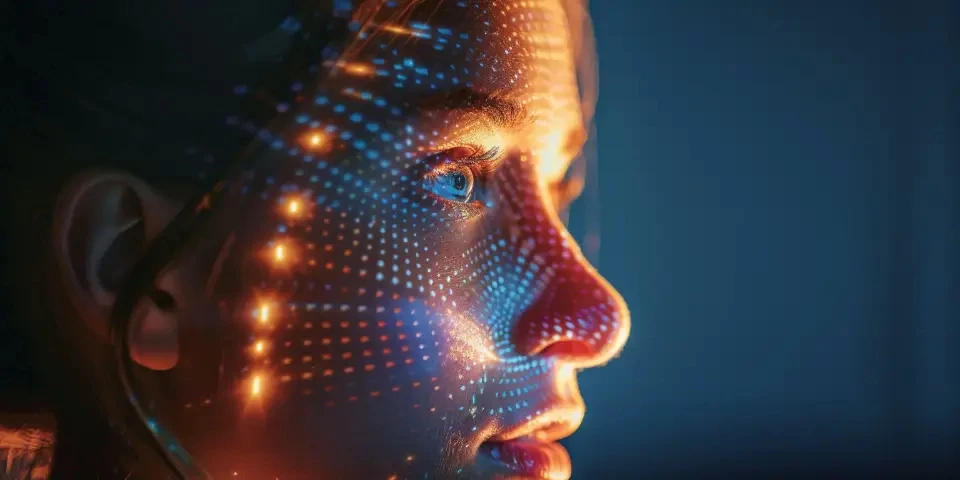Smart Homes for a Smarter Life The Role of AI in Home Automation
Smart homes powered by artificial intelligence (AI) are revolutionizing the way we live, offering unparalleled convenience, comfort, and efficiency. With AI-driven home automation systems, tasks that were once manual and time-consuming can now be effortlessly managed with just a few taps on a smartphone or even through voice commands. Let's explore the remarkable ways in which AI is transforming our homes.
1. Seamless Integration
AI-powered smart home systems seamlessly integrate various devices and appliances, allowing them to communicate and work together harmoniously. From thermostats, lighting, security cameras, to kitchen appliances, everything can be interconnected. This integration enables advanced automation and control, creating a unified and synchronized living environment.

2. Energy Efficiency
AI algorithms can learn and analyze energy consumption patterns, optimizing the usage of appliances to maximize energy efficiency. Smart thermostats can adjust temperature settings based on occupancy, weather conditions, and personal preferences. The integration of AI into energy management systems ensures significant energy savings while maintaining comfortable living conditions.
3. Enhanced Security
AI-powered security systems can provide robust protection for smart homes. Cameras with facial recognition can identify people and send alerts to homeowners when unrecognized individuals are detected. AI algorithms can also detect abnormalities in activity patterns, notifying homeowners of potential threats. AI-driven security systems offer peace of mind and enhanced safety for residents.
4. Personalized Experiences
AI learns from individual preferences and adapts smart homes accordingly. From personalized lighting and ambient temperature to customized playlists and TV recommendations, AI-based systems create a tailored experience for each resident. These systems understand user habits, making everyday living more enjoyable and convenient.
5. Voice-Activated Assistants
Virtual assistants like Amazon's Alexa, Google Assistant, or Apple's Siri leverage AI to provide voice-activated control over smart home devices. Users can effortlessly manage their homes by simply speaking commands or asking questions. Virtual assistants are rapidly becoming an integral part of smart homes, offering an intuitive and hands-free experience.
6. Health Monitoring
AI-powered devices monitor and analyze health metrics, providing valuable insights to enhance well-being. Smart beds can track sleep patterns, while smart mirrors can monitor vital signs and detect early signs of health issues. By seamlessly integrating health monitoring into our living spaces, AI contributes to healthier and more informed lifestyles.
7. Automated Household Chores
Robotic vacuum cleaners, lawn mowers, and smart washing machines with AI capabilities are automating mundane household tasks. These devices can learn the layout of the home, navigate obstacles, and efficiently clean or maintain the living space. AI-powered household chore automation saves time and effort, giving homeowners more freedom and relaxation.
8. Sustainable Living
Smart home systems leverage AI to enable sustainable living practices. From water and energy management to waste reduction, AI algorithms can help homeowners make environmentally conscious decisions. For example, AI can monitor water usage and detect leaks, ensuring efficient consumption and preventing wastage.
9. Elderly Care
AI-based smart home systems offer enhanced care for the elderly. Voice-activated assistants can provide medication reminders, emergency alerts, or daily task checklists. AI algorithms can also detect falls or abnormal activities, alerting caregivers or emergency services. These intelligent systems empower the elderly to live independently while receiving necessary assistance.
10. Entertainment and Home Theater Control
AI-driven smart home systems integrate entertainment devices, providing an immersive and personalized experience. By learning individual preferences, AI algorithms can suggest movies, create playlists, or adjust lighting and sound settings for the perfect home theater experience. The integration of AI into entertainment systems elevates the overall enjoyment of home entertainment.
11. Remote Monitoring and Control
Smart home systems with AI capabilities offer remote monitoring and control options. Whether it's adjusting the thermostat before arriving home or remotely managing security cameras, AI-enabled applications provide homeowners with peace of mind and greater control over their living environment.
12. Cost Savings
While the initial investment in smart home technologies can be significant, AI-driven home automation systems offer long-term cost savings. Energy-efficient devices, optimized usage of resources, and reduced reliance on manual labor translate into lower utility bills and maintenance costs.
13. Voice-Controlled Shopping
AI-driven virtual assistants can facilitate voice-controlled shopping within smart homes. Users can order groceries, household items, or even schedule service appointments with just a voice command. Voice-controlled shopping enhances convenience and streamlines the purchasing process.
14. Improved Sleep Experience
AI-powered sleep systems can adjust temperature, lighting, and ambient sounds to create the ideal sleeping environment. By analyzing sleep patterns and detecting disturbances, these systems can offer tailored recommendations to improve sleep quality, promoting overall wellness.
15. Future Potential and Expansion
AI's role in home automation is continuously evolving. The potential for future innovations is limitless, with further advancements in robotics, machine learning, and natural language processing. Smart homes will continue to adapt and improve, offering a more efficient and personalized way of living.
Frequently Asked Questions
Q: Are AI-powered smart home systems safe and secure?
A: AI-powered smart home systems utilize encryption and advanced security measures to safeguard user data and protect against cyber threats. Additionally, they offer features like two-factor authentication and regular security updates to ensure a secure environment.
Q: Can I integrate my existing devices into an AI-powered smart home system?
A: Many AI-powered smart home systems are designed to be compatible with a wide range of devices. Before purchasing a system, ensure that it supports the integration of your existing devices to make the most of your investment.
Q: How much energy can be saved with AI-driven energy management systems?
A: AI-driven energy management systems can result in significant energy savings, potentially reducing energy consumption by up to 20-30%. The exact savings depend on individual usage patterns and the efficiency of the devices integrated into the system.
Explore your companion in WeMate